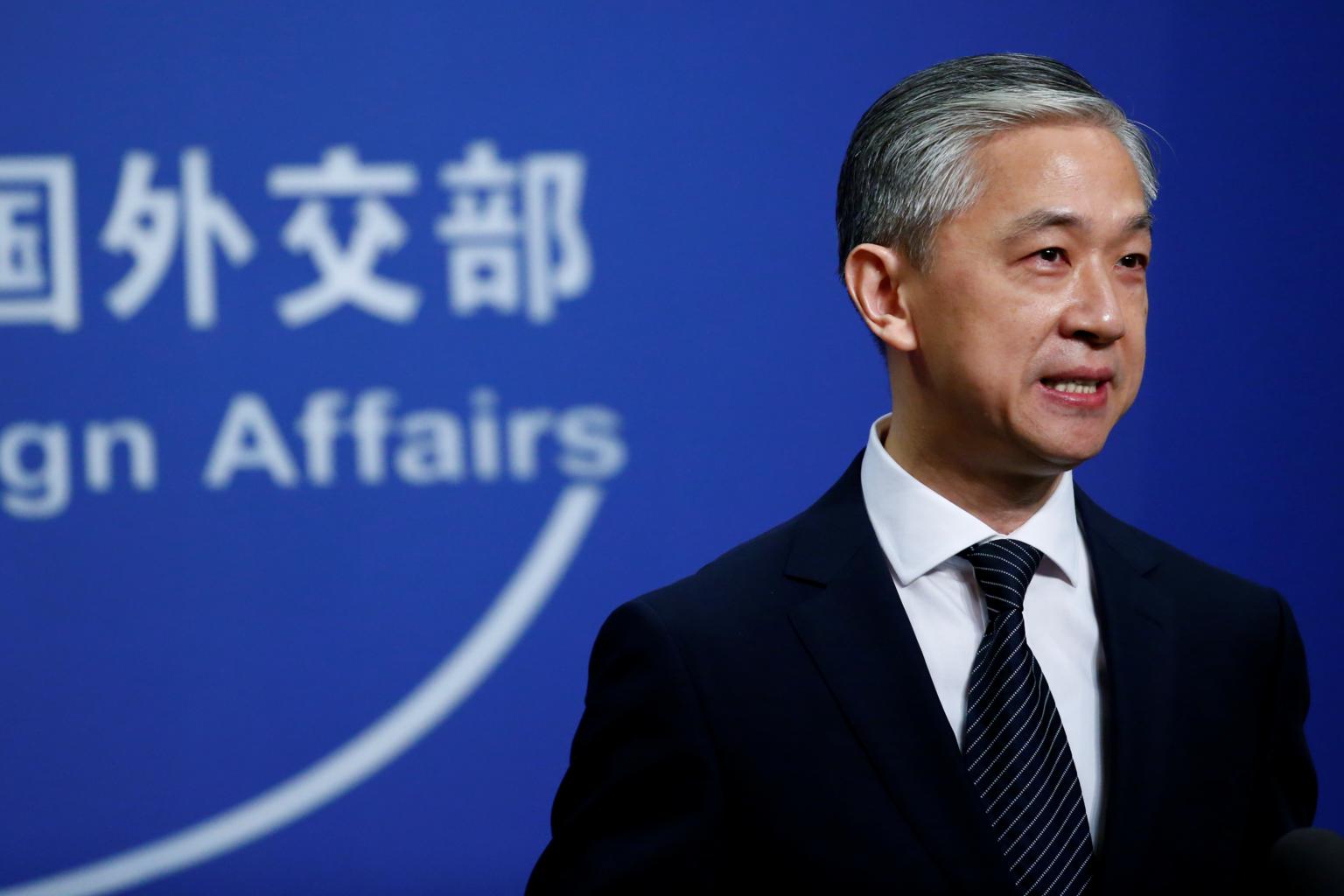China foreign ministry says US claim that Houston consulate steals IP is slander
Sign up now: Get insights on Asia's fast-moving developments

Foreign ministry spokesman Wang Wenbin said China had urged the US to stop using any excuse to limit, harass or crack down on Chinese scholars in the country.
PHOTO: REUTERS
BEIJING (REUTERS, BLOOMBERG) - United States allegations that China's consulate in Houston is stealing intellectual property are malicious slander, China's foreign ministry spokesman Wang Wenbin said on Thursday (July 23).
The US said on Wednesday that it had given China 72 hours to close the consulate "to protect American intellectual property and Americans' private information", prompting Chinese threats of retaliation.
When asked about reports that a Chinese researcher accused of visa fraud and concealing ties to the military was now holed up in China's consulate in San Francisco, Mr Wang, speaking at a daily news conference in Beijing, said that China urged the US to stop using any excuse to limit, harass or crack down on Chinese scholars in the country.
He also warned the US to think "carefully" about where their relationship was heading, in response to a question about their trade deal that came amid a flare in tensions over the forced closure of Beijing's consulate in Houston.
"China's position on the China-US relationship is clear and consistent," Mr Wang said. "As to which direction this relationship is heading, it's an issue for the US to carefully think about."
His comments came hours after Global Times Editor-in-Chief Hu Xijin said Beijing would likely respond to the shuttering of its Houston mission with moves that inflict more pain on the US than just closing its operation in Wuhan - including potential cuts to its larger Hong Kong consulate.
Mr Hu's posts are closely watched as they have in the past preceded official Chinese government announcements.
Mr Wang declined to elaborate on China's retaliation plans only repeating Beijing's vow to "take resolute and justified measure to ensure our legitimate rights and interests."
The shut down represents one of the biggest threats in years to relations between the US and China, which have worsened in recent months on fronts ranging from trade to the early handling of the coronavirus pandemic.
Mr Wang called the Houston closure a "serious sabotage" of China-US relations and said it was "breaking down the friendship bridge between the two sides."
He had pointed out on Wednesday that the number of US diplomatic missions and staff in China far exceeded that of China's presence in America, before saying Beijing would retaliate if the US didn't reverse its decision on Houston.
The South China Morning Post reported earlier Thursday that China would move to close the US consulate in the south-west city of Chengdu in retaliation for the Houston decision, citing a source briefed on the decision.
The US consulate in Chengdu opened in 1985 and covers Sichuan, Yunnan, Guizhou and Chongqing in China's south-eastern region. It also covers Tibet, whose status as an autonomous region of China is a longtime thorn in relations between the world's two largest economies.
The Chengdu mission is also where former Chongqing city police chief Wang Lijun fled in 2012 with evidence linking the family of his boss, the once high-flying Bo Xilai, to the death of British businessman Neil Heywood.
Those allegations touched off a scandal that roiled the Chinese political establishment and saw then-Chongqing party secretary Bo ousted and his wife convicted of Heywood's murder.
"The US has over 1,000 staff at the Hong Kong consulate," Mr Hu, the editor of the Communist Party newspaper, wrote in a post on Chinese social media Thursday. "What are so many people doing? It is obviously a spy centre."
Cutting its staff to 100 or 200 people could be one of the many options available to China, he said.
Mr Hu also wrote that the US consulate in Wuhan - the mainland city at the early epicentre of the coronavirus pandemic - has already started making preparations, saying the Chinese mission in Houston was only give 72 hours to close causing great inconvenience.
He didn't elaborate or say where he got the information.
Closing the Wuhan consulate would thus be too easy and the US sense of pain would not be the same as that felt by Chinese diplomats leaving Houston, Mr Hu said.
"Therefore when China makes a retaliatory move, it is very likely to jump out of the US' preset battlefield and start at a place the makes the US feel more pain and catches it by surprise," he wrote.


